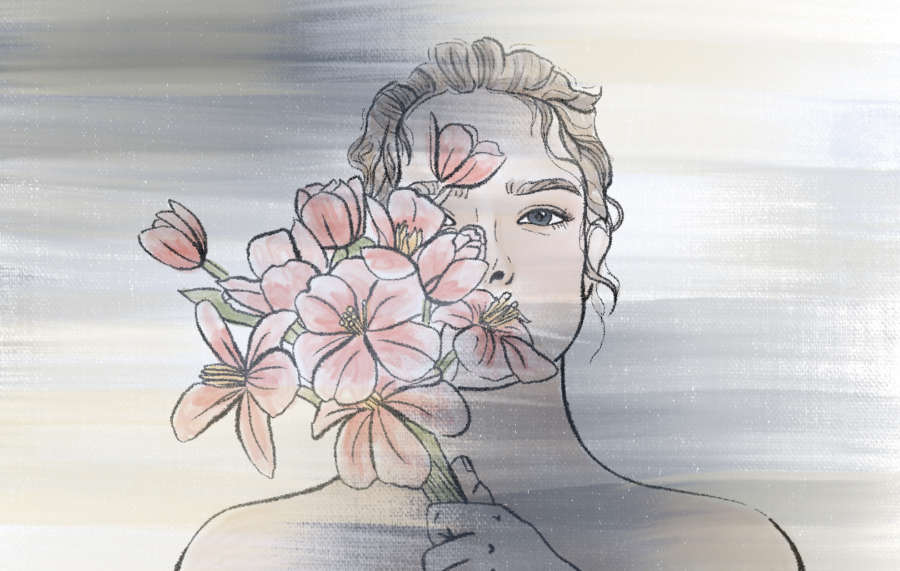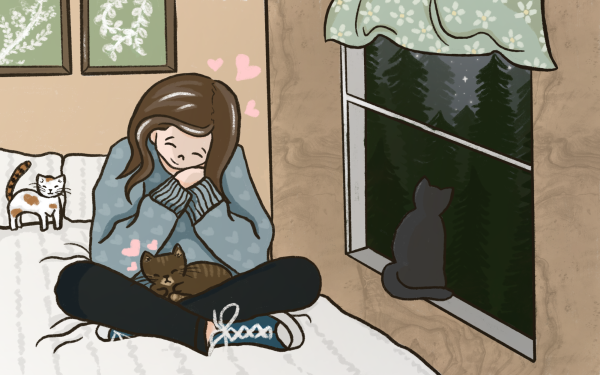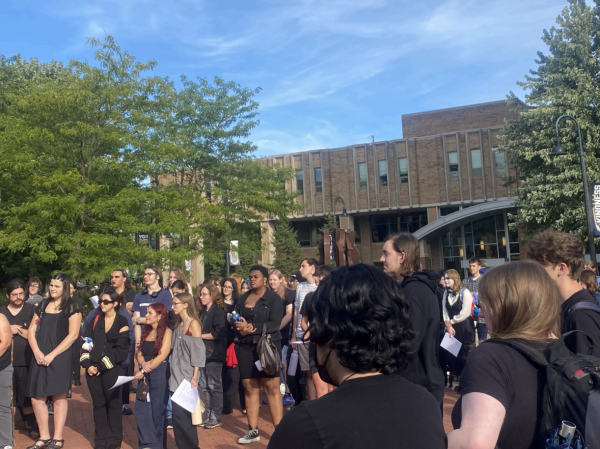are we giving up on love ?
It can be tough to be both a strong woman and a woman in love. Thus, I’ve opted to be a strong single woman enamored with love.
Love is hard work, and it can be time consuming for someone in search of themselves. Dating young, for example, can be challenging because you don’t know who you are yet, and being in a relationship that doesn’t allow you to grow and discover yourself may lead you to believe that love defines you.
As a result, it was one of the reasons some of us, including myself, gave up on it.
Rapidly, within friend groups, love became a point of controversy. Because we finally opened up about the pain that it causes, our generation began to question this subjective concept.
New types of relationships (situationships) gradually emerged to escape love, now practically “taboo” or embarrassing to discuss. The three words used to declare it grew more powerful than they used to be because we stopped allowing ourselves to say them.
Love is constantly surrounding us. Our families, our friends, our dogs and our favorite hobbies/passions ground us to a certain stability. But the difference between platonic love and romantic love is romance that has been proven to hurt badly. And I believe people became aware that acknowledging it would potentially open the doors to pain. Peers’ experiences, children of divorce, abusive relationships or social media’s increased closeness have exposed viewers to intimate details of romantic problems that escalated the notion that love is inherently bad, or worthless.
Hopeless romantics started to be mocked because they aimed for “unachievable” standards in a culture that itself lowered the bar.
Normalizing and tolerating toxicity, adultery and loss of desire reshaped the norms of a partnership, allowing misery to persist by staining “love.”
Yes, our society did a great job of enabling people to speak up about the downsides of love, but did the latter cause us to forfeit love?
Unified Lawyers estimates that 48% of global marriages today would result in divorce. Similar numbers apply to the U.S., although the 50% figure may be higher given that five states, including Louisiana and California, do not submit their divorce data.
According to the UN’s research on the record of global divorce rates, the reasons for these divorces would be based on lack of commitment, excessive arguing, infidelity and marrying too young.
Therefore, people would either lose passion, lack mutual understanding or communication, be uncommitted or be fearful of long-term commitment because love might evolve over time.
The idea of marriage was therefore reevaluated and found to not be as permanent as the love two people professed to one another during their vows. This is the reason why marriage is also beginning to lose value among our generation.
Love is unpredictable, and it became something, like marriage, in which people began to lose faith.
Based on my research, I believe that our generation gave up on love for three reasons:
-Standards. Some of us began to doubt or were unable to fall in love because of our idealized vision of love. This can be a result of our immediate surroundings, who served as role models, or as movies or books that fed our desire for perfect love. Some of these standards may also result from a battle with self-esteem, thinking we are unlovable until the ideal partner appears and completes us. Alas, we will be the ones to end beautiful relationships at the first complication because we will always be thinking that our better half is waiting someplace else. We will be spending our life looking for our soulmate because we will be unable to commit to something that requires work.
– Negative experiences. Some people, like me, will avoid falling in love because they have been deeply hurt. They will repeatedly reject new love partners because they have had unpleasant experiences with love or have witnessed undesirable characteristics of love that make them fear it. Negative experiences may just have prompted individuals to reconsider their priorities. They will focus on other things, such as work and will be unable to commit because of their fear of attachment. They usually believe that love is an overrated idea. That love is neither permanent or everlasting, and they will wonder, “Why should someone commit their entire lives to someone who may abandon them.” Unfortunately, repeatedly rejecting people will usually lead to a life filled with loneliness.
– Ideology. Some will find love to be an unrealistic concept: something purely scientific, “a chemical reaction in our brains that enables us to breed.” Most people believe that it is now too easy to confuse love with attraction. They believe that people will always have a desire for comfort and attachment because it is in our nature to procreate. They will instinctively seek someone to avoid being alone. They will perpetuate the idea that love is a myth, and that it is only found in books and television shows. Because this concept does not exist, people will usually settle for relationships that may not or may never truly make them happy because they won’t hope or look for more.
So, are we letting our society dictate our vision of love?
I believe that with time we simply let ourselves find shields against pain and disappointment.
Life is hard enough as it is, and being able to complain about love, allowed us to regain control.
A control that surrendered our willingness to love, at least fully.
Hi, I’m Catie Pusateri, the Editor-in-Chief of A Magazine. My staff and I are committed to bringing you the most important and entertaining news from the realms of fashion, beauty and culture. We are full-time students and hard-working journalists. While we receive support from the student media fee and earned revenue such as advertising, both of those continue to decline. Your generous gift of any amount will help enhance our student experience as we grow into working professionals. Please go here to donate to A Magazine.









